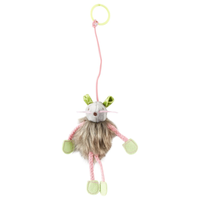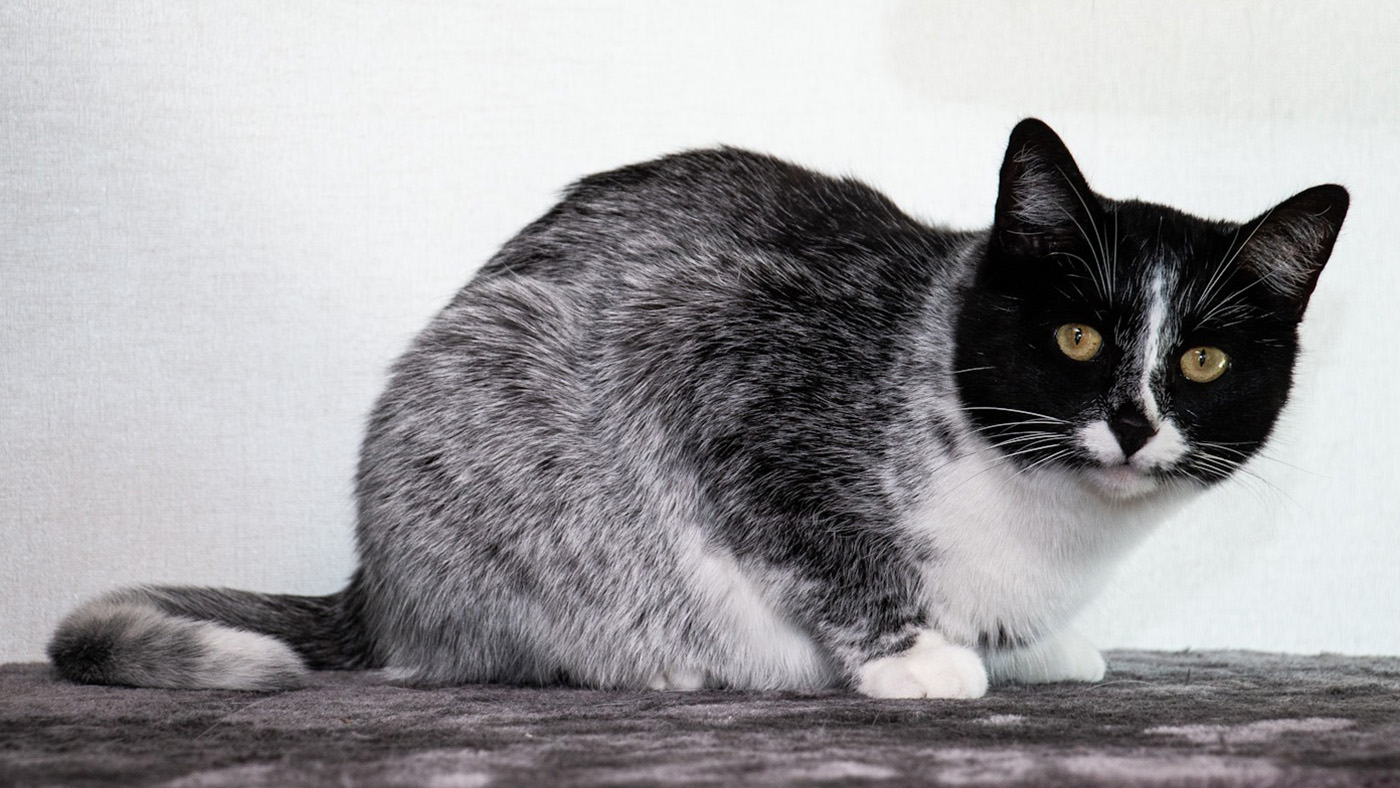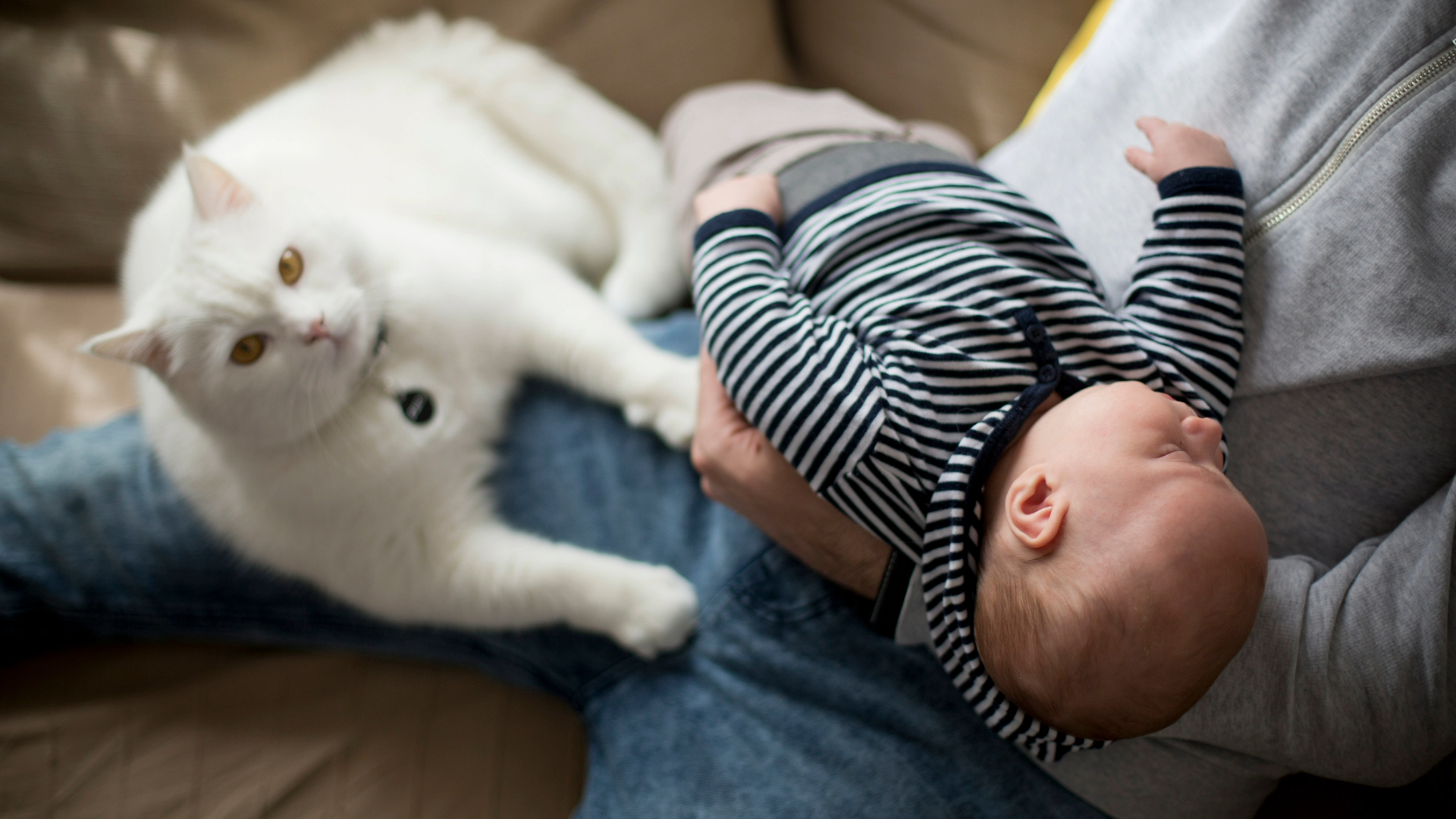
Do cats feel jealousy? As with most pets, cats have some quirks that can leave owners scratching their heads.
Some behaviors can seem almost human, particularly when your feline friend is acting possessively, defending their bowl of the best cat food from other pets in the house. Is it possible that cats feel jealousy? Or are owners simply projecting?
We spoke to expert vet surgeon, Dr. Lily Richards to find out whether cats can really feel emotions as complex as jealousy. She explained that, while research into cat jealousy is lacking, cat owners will attest that their kitties definitely behave in a way that can be interpreted as jealousy, particularly when they are feeling territorial or anxious.

Dr. Lily Richards is a vet with 11 years of experience in farm, equine, small animal and exotic patient care. After running a busy clinic she took a step into client education focusing on getting the right information to those that need it and are searching for help and advice from professionals online.
Do cats feel jealousy?
Often jealousy is rooted in other emotions, such as anxiety in cats. Your cat might be worried about a change in their living situation, feeding schedule or a new addition to the family, which can lead to them behaving jealously.
Dr. Richards says: “Feline behavior is truly a complex subject. It is difficult to accurately and scientifically say that behaviors we as humans denote as 'jealous' behavior, such as possessiveness towards a toy, another animal, human affection, or any resource, is jealousy.
“Indeed, [cats often display] territorial behavior focused on resource protection and a demonstration of a natural solitary lifestyle preference. In my personal experience, my cats absolutely show signs of jealousy both between each other and towards myself. They are very protective of my time and affection.”
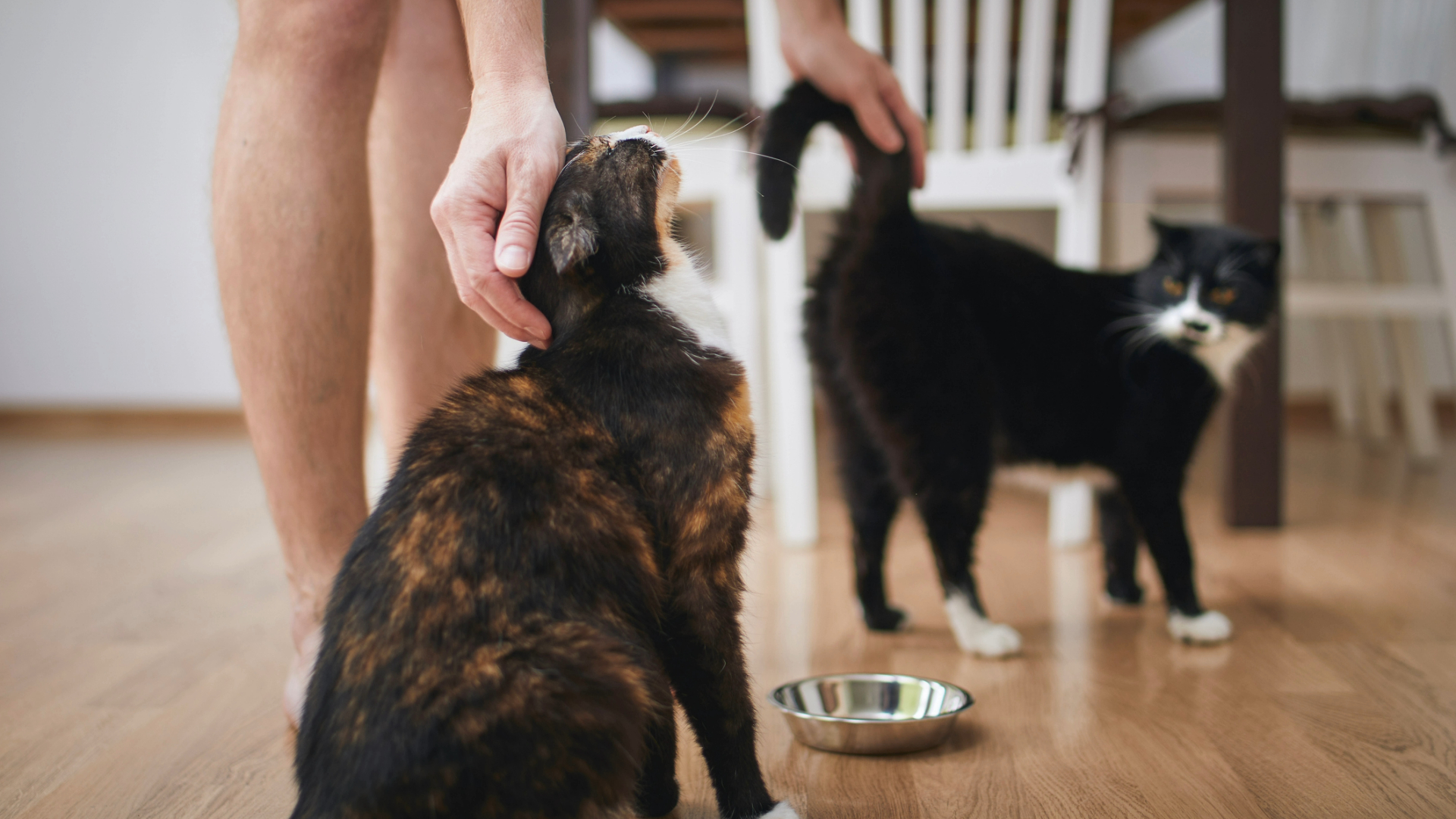
How can you tell if a cat is jealous?
Cats can demonstrate behavioral changes for a number of different reasons, so if in doubt or you have concerns about your cat's behavior, always contact your vet for advice, suggests Dr. Richards.
PetsRadar Newsletter
Get the best advice, tips and top tech for your beloved Pets
If something has changed in your cat’s life and they start displaying new or unusual behaviors, they might be feeling jealous.
Dr. Richards says: “Jealousy may present as resource guarding, aggression, scratching and biting and also attention seeking, scent marking, rubbing on the object of focus and lying on top of it.
“Other important behaviors to be aware of that could indicate stress due to jealousy (but also could be warning signs of illness) include hiding away, evasive behavior, destructive behavior, excessive vocalization, overgrooming, and inappropriate elimination or urination.”
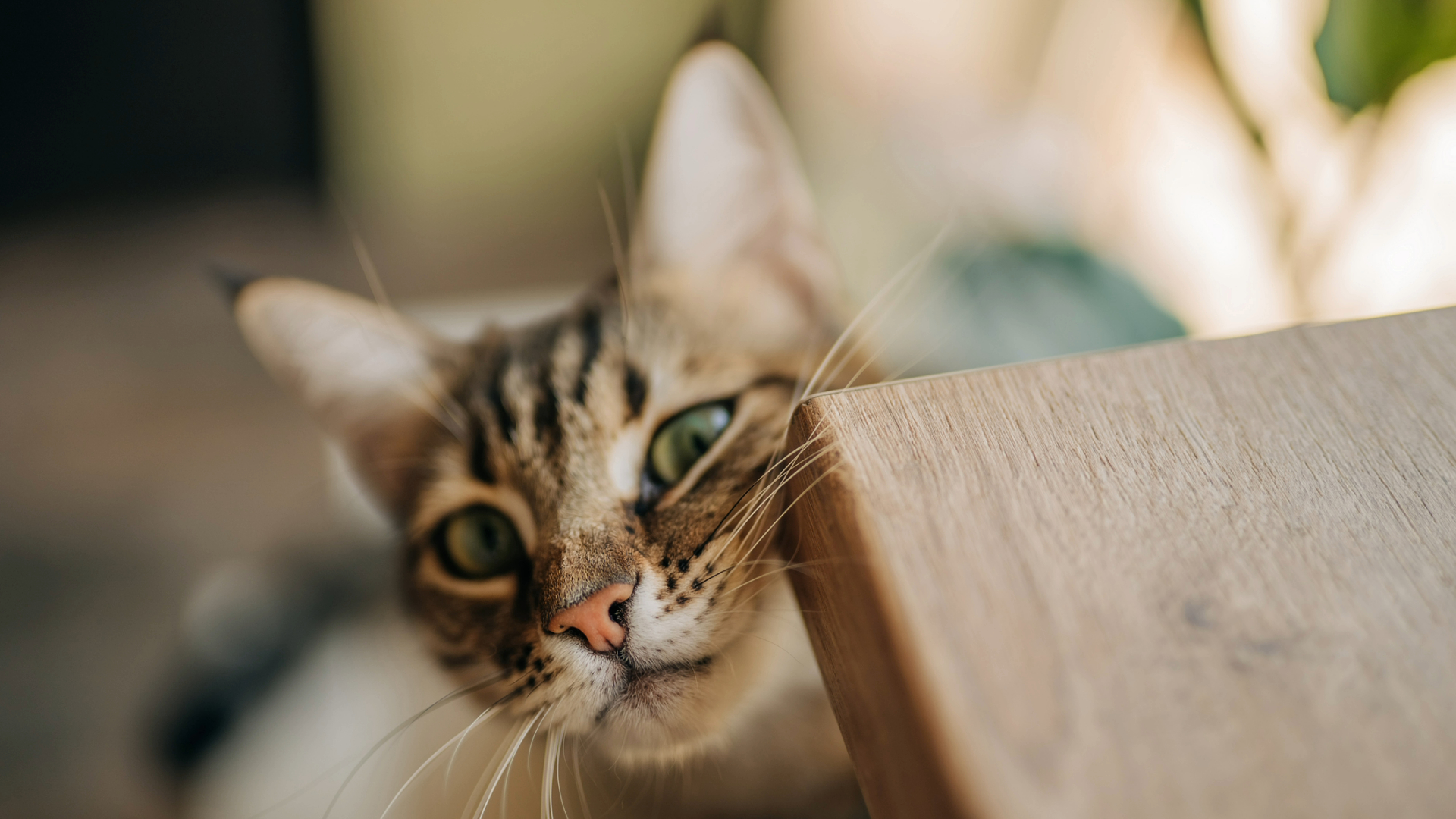
Why do cats get jealous?
“Jealousy triggers could present after a change in routine, the introduction of a new family member such as a baby or another pet, or after the introduction of a novel resource such as a food item, treat dispenser, new bed, activity gym or toy,” says Dr. Richards.
Here are all of the reasons why a cat might get jealous:
1. There’s a new guest in the house
Cats are territorial creatures, and throwing a new pet or person into their life can bring their territorial feelings to the fore, as described in the Journal of Feline Medicine and Surgery. If you’ve brought a new kitten home in particular, you’ll want to know how to introduce a kitten to a cat as this is a socially complex
2. Someone is playing with their favorite toy or sleeping in their favorite spot
Just like children, if your cat has a favorite thing and someone else starts using it, they’re going to get grouchy about it. Sometimes even if they haven’t played with a toy in months, seeing another pet enjoying it might trigger territorial feelings and your cat may lash out, as indicated in research in the Journal of Feline Medicine and Surgery.
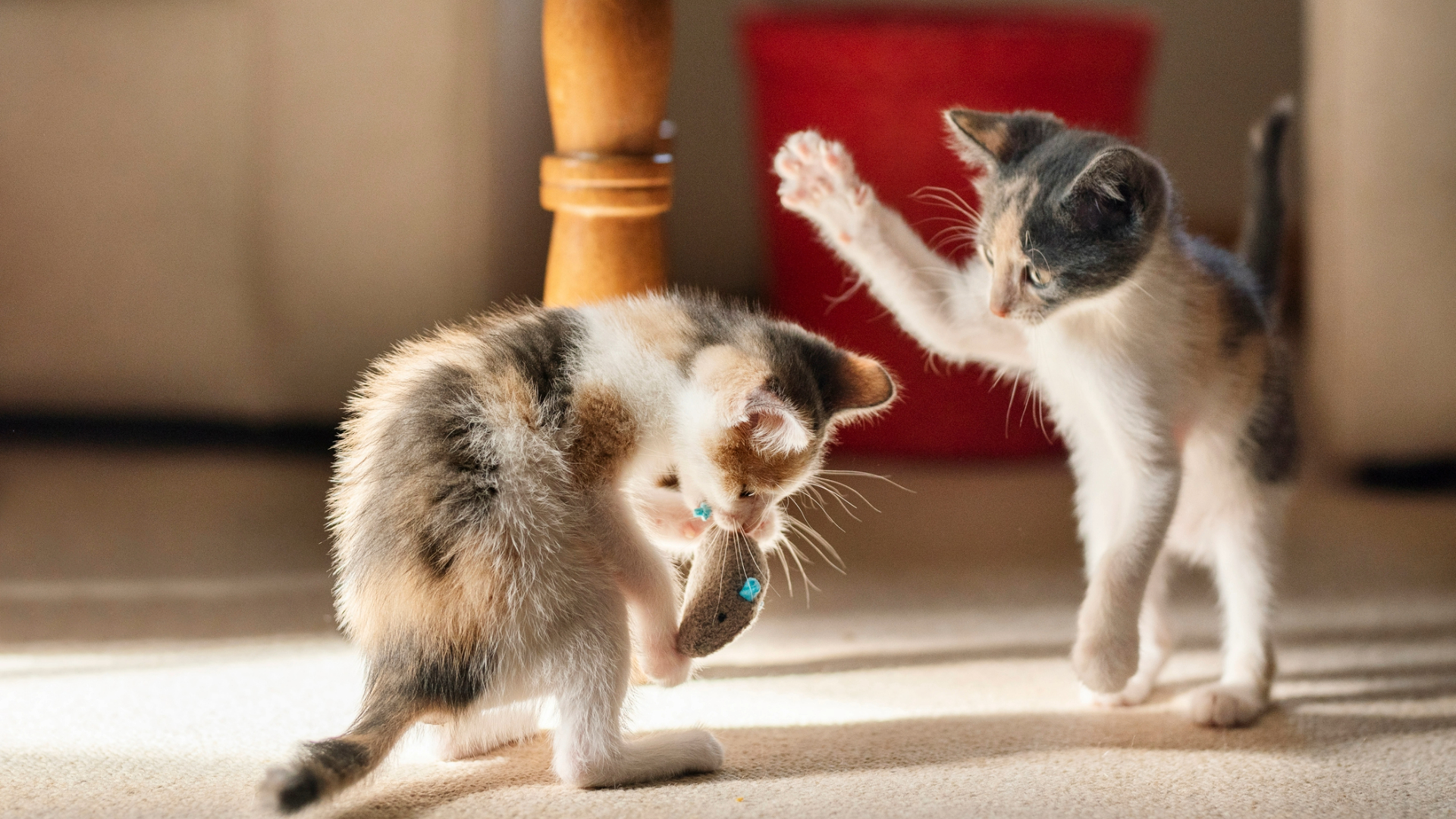
3. Their person is displaying affection to another family member
Cats can struggle with a new baby, not only because it is a new, strange (and loud) thing in their life, but because they are suddenly getting less attention themselves. Some cats can even get upset when partners show affection to one another. The research is still unclear in this area, but a study reported in Pet Behavior Science showed there are at least some recognizable signs of jealousy in cats, although a firm conclusion could not yet be reached.
4. They think their resources are under threat
If you have multiple pets, dining etiquette can suddenly become an issue. Your cat may feel jealous of their food and begin to behave defensively if they believe another pet is trying to eat it, according to research in the Journal of Feline Medicine and Surgery.
How to help a jealous cat
There are a few things you can do to help reassure your cat and alleviate their feelings of jealousy, as outlined in the Journal of Feline Medicine and Surgery:
1. Give them exclusive attention
Make sure that when you give your cat some fuss they aren’t sharing your attention with anyone else. Put down your phone and take the time to give your cat a good scratch or play with them. If you have other pets, ensure they are busy while you pay attention to your cat, so you are less likely to be interrupted.
2. Provide ample perches and places to sleep
If there is a new pet, baby, or a strange person in the house, make sure that your cat has areas that are just for them. Perches out of reach of children, beds that are just for them This will help them to feel secure and if they are well rested, they are less likely to be overly cranky.
3. Give them treats
Few things tell your cat that you love them quite as clearly as giving them their favorite treat. While it’s important not to overfeed, tapping into your kitty’s cupboard love can be a good way to help them feel valued and secure.
If you are particularly worried about your cat displaying jealousy toward other family members, read up on how to introduce cats and babies. Or, if you have older kids, have a look at how to introduce a cat to your children.
Looking for a new way to spend time with your cat? You could play with them using this fun, bouncy mouse. This interactive toy will keep them entertained for hours and our tester says it's "very durable".

Lou is an experienced writer and keen dog lover who works at PetRadar's sister sites, LiveScience, Fit And Well and Coach. When Lou isn't covering health and fitness, she's busy spending time with her rescue lurcher, Dixie, horse riding or growing all kinds of veggies and flowers on her allotment.
Lou grew up with dogs and got her first dog in 2023 after many months of searching. Dixie is a six-year-old brindle greyhound lurcher (with lots of saluki mixed into her DNA too). Dixie was very uncertain and nervous when she first came home with Lou, who is her third owner, but after lots of time and care, she is now a happy, confident dog (with lots of canine and human friends!)
